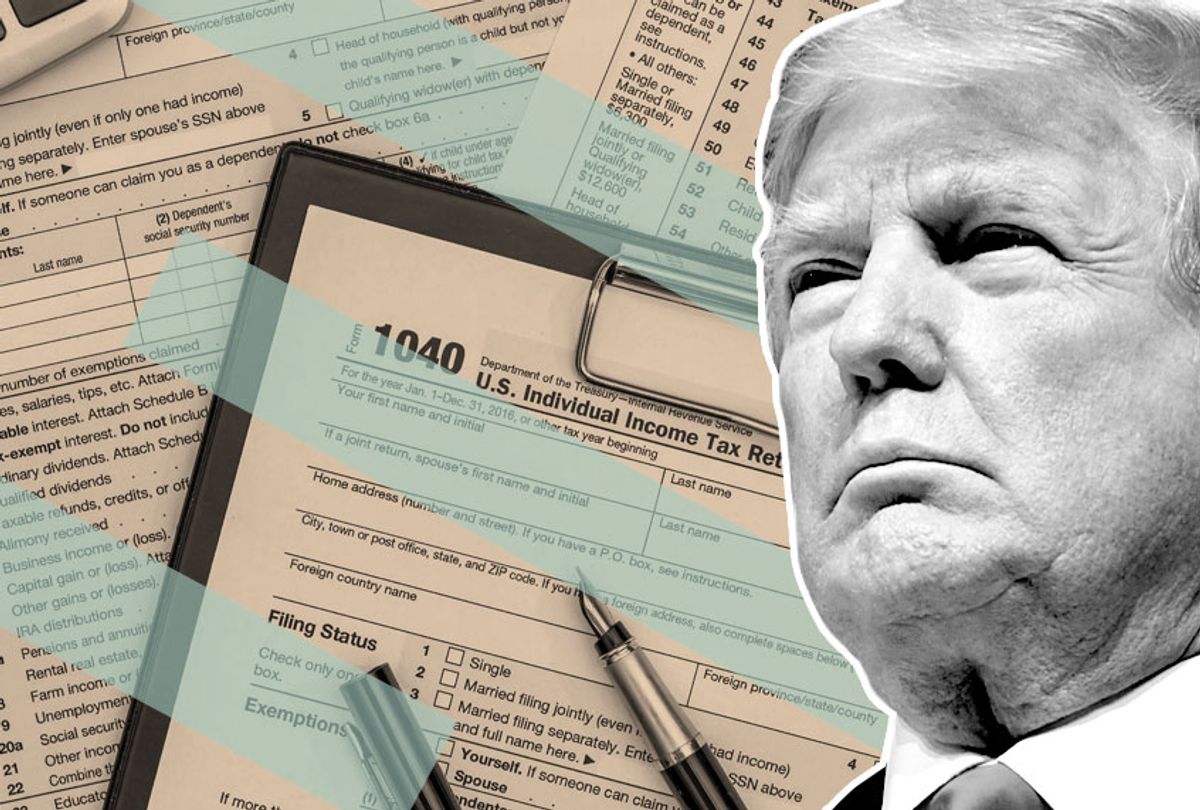House Democrats filed a lawsuit against the Treasury Department and Internal Revenue Service (IRS) on Tuesday over the White House's refusal to provide lawmakers with access to six years of President Donald Trump's tax returns.
The move escalates the standoff between the executive and legislative branches of government over the president's financial records, setting the stage for what is likely to be a lengthy legal battle. It comes after a months of fighting between the Democratic-led House Ways and Means Committee, which requested and then subpoenaed the returns, and Treasury Secretary Steve Mnuchin.
The outcome of the dispute will likely determine whether the financial information that Trump has kept secret will be viewed by Congress and the public.
In the lawsuit, which was filed Tuesday in the U.S. District Court in Washington, D.C., the House Ways and Means Committee argued that the administration's refusal to provide the documents represents "an extraordinary attack on the authority of Congress to obtain information needed to conduct oversight of Treasury, the I.R.S., and the tax laws on behalf of the American people."
The panel's chairman, Rep. Richard Neal, D-Mass., is seeking Trump's tax returns under Section 6103 of the federal tax code that says the IRS "shall furnish" the returns of any taxpayer to the chairmen of the tax-writing House Ways and Means Committee and the Senate Finance Committee for a legitimate legislative purpose.
Neal initially made the request for Trump's tax returns on April 3. After a series of letters between the panel and the administration, Mnuchin formally rejected the request at the beginning of May, arguing that the request represents an unprecedented abuse of power. Neal issued subpoenas to the IRS and Treasury Department on May 10.
The panel stated in the filing that they need access to the president's returns to "carry out its broad mandate to oversee Treasury, the IRS, and the Nation's tax laws."
Ways and Means member Rep. Lloyd Doggett, D-Texas said on Tuesday, "This long-overdue legal action is needed to keep this bad president from setting a bad precedent. It should not take a court to affirm that 'shall' means 'shall.' But Trump will do what it takes to delay the inevitable, hiding his tax returns as long as he can."
The Treasury Department and Republicans in Congress, meanwhile, have argued that the request represents an abuse of power.
Rep. Kevin Brady, R-Texas, the top Republican on the Ways and Means panel, previously urged Mnuchin to reject Neal's request, calling it an "abuse" of authority from Democrats on the committee.
"Weaponizing our nation's tax code by targeting political foes sets a dangerous precedent and weakens Americans privacy right," Brady wrote in an April 3 letter to Mnuchin. "All Americans have a fundamental right to the privacy of the personal information found in their tax returns."
Democrats have been on a hunt for Trump's tax returns since he bucked decades of tradition when he refused to release them during the 2016 election cycle,
Although not required by law, every major party presidential nominee since the 1970s has chosen to publicly release his or her tax returns except for Gerald Ford, who only released a summary. Financial disclosures can help paint a fuller picture of a candidate's business positions and interests by providing information about financial dealings, such as investments, donations, business relationships, assets and possible conflicts of interests.
The lawsuit over Trump's taxes is the latest development in an escalating feud between Congress and Trump, who has vowed to fight "all the subpoenas" looking into his administration and personal finances.
Trump has asserted executive privilege to block the release of an unredacted version of former special counsel Robert Mueller's report, as well as its underlying evidence, on Russian interference in the 2016 presidential election. He also blocked subpoenas for testimony from former White House communication director Hope Hicks, former White House deputy counsel Annie Donaldson and former White House counsel Don McGahn.
Trump also sued the House Oversight and Reform Committee to block the panel for obtaining years of his financial records from accounting firm Mazars USA.
He also sued Deutsche Bank and Capital One in an attempt to block the banks from responding to subpoenas, issued by House Intelligence Committee and the House Financial Services Committee, seeking financial documents related to the president, his family and the Trump Organization.
The district court judges ruling on the two separate cases sided with Congress, saying the panels have broad authority to subpoena documents for investigative purposes that could result in legislative action. Trump's legal team appealed both rulings.



Shares